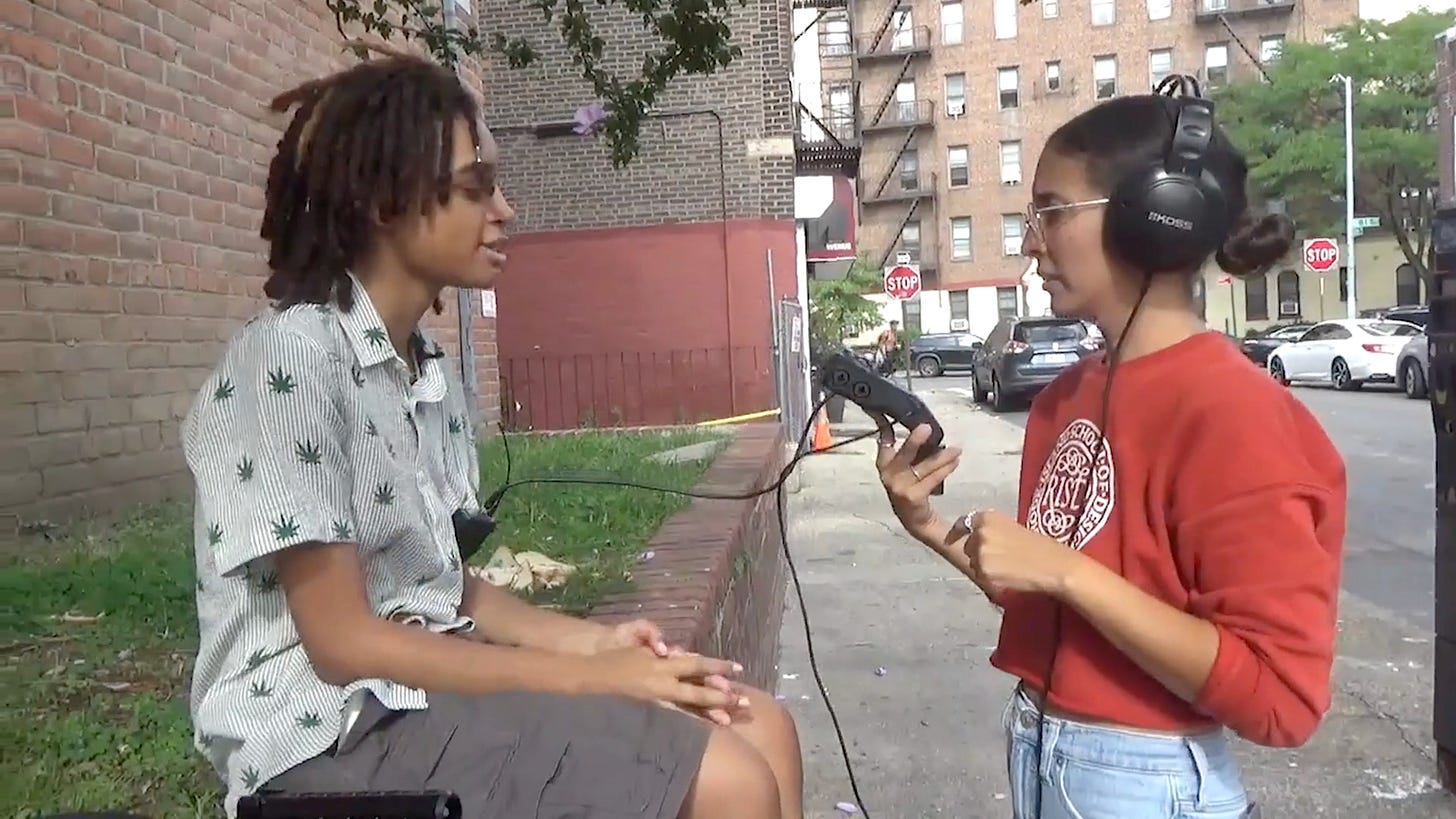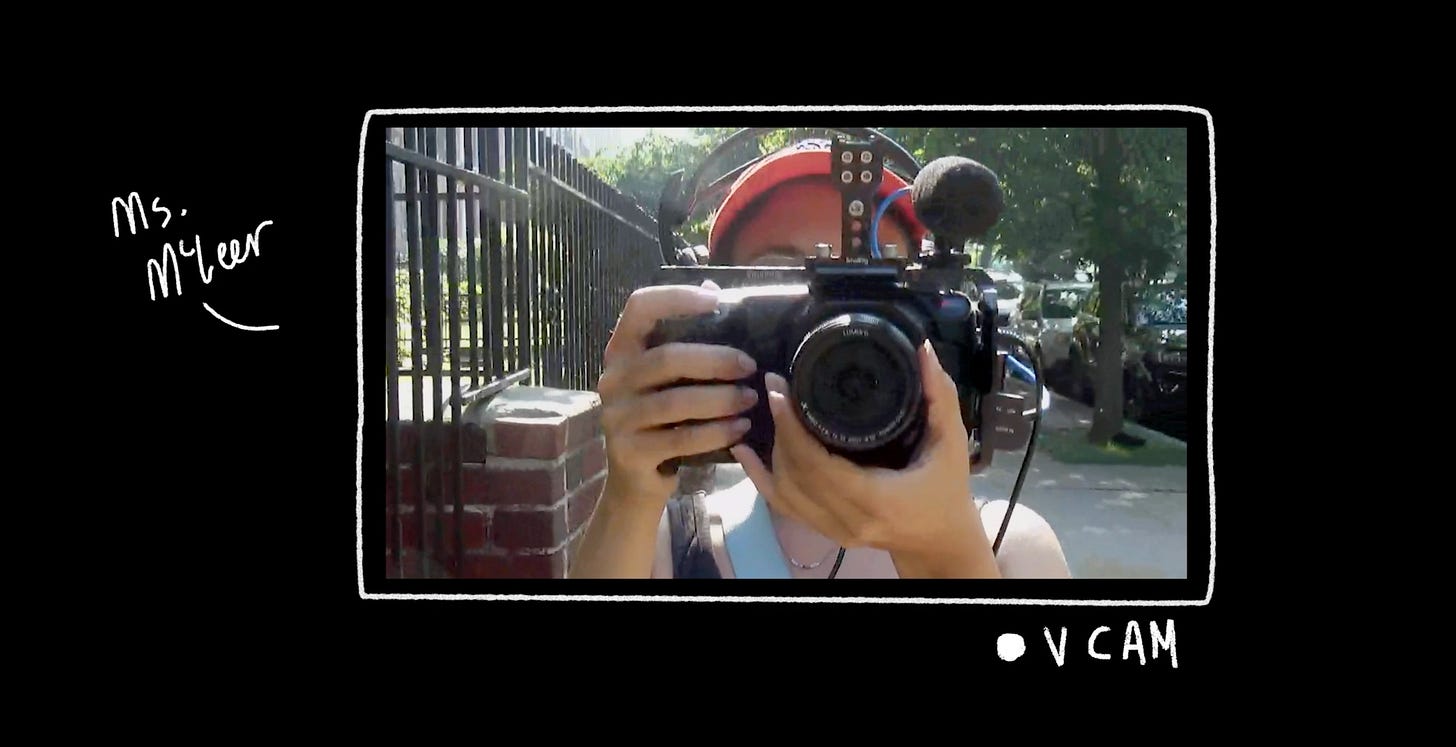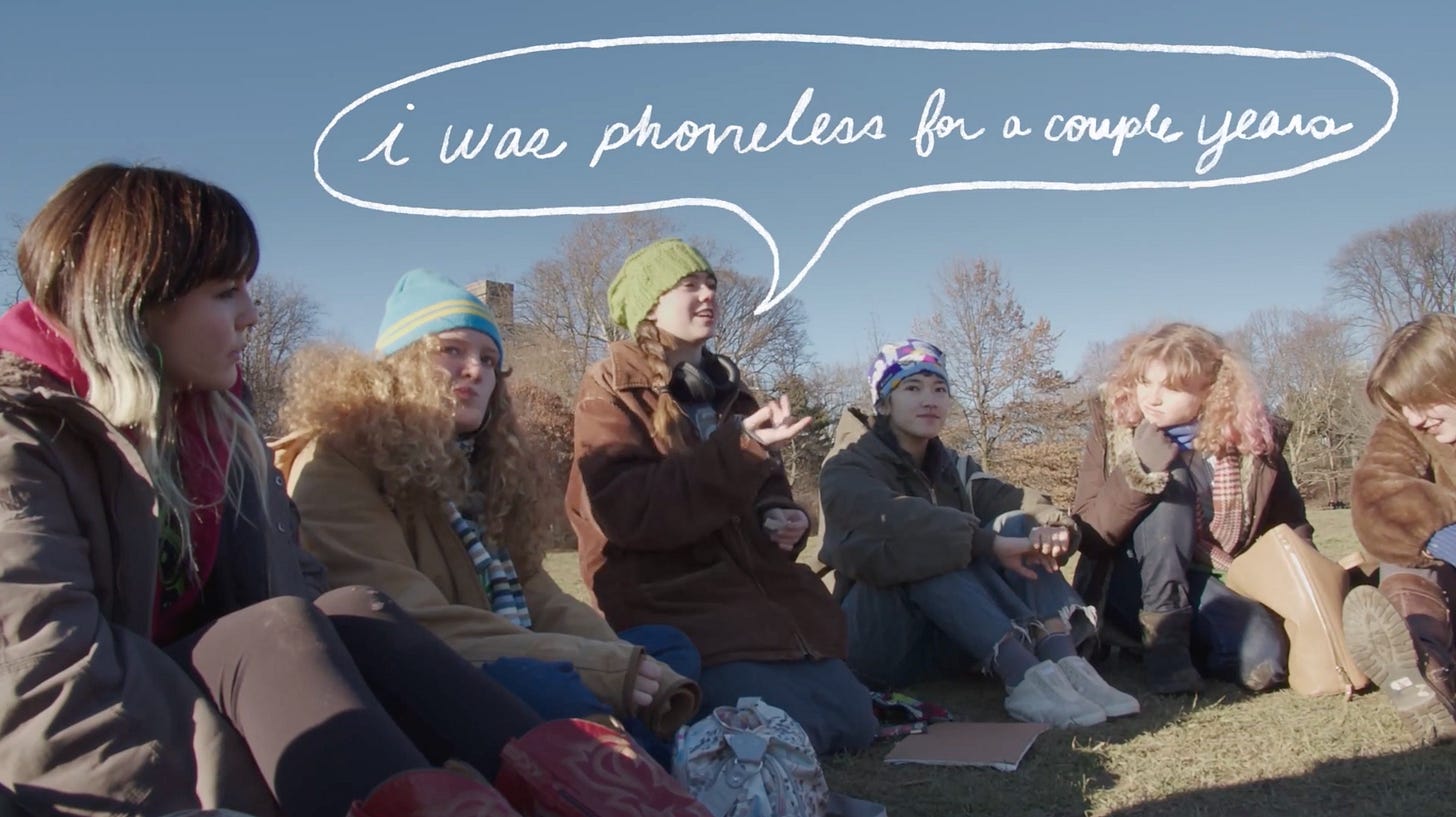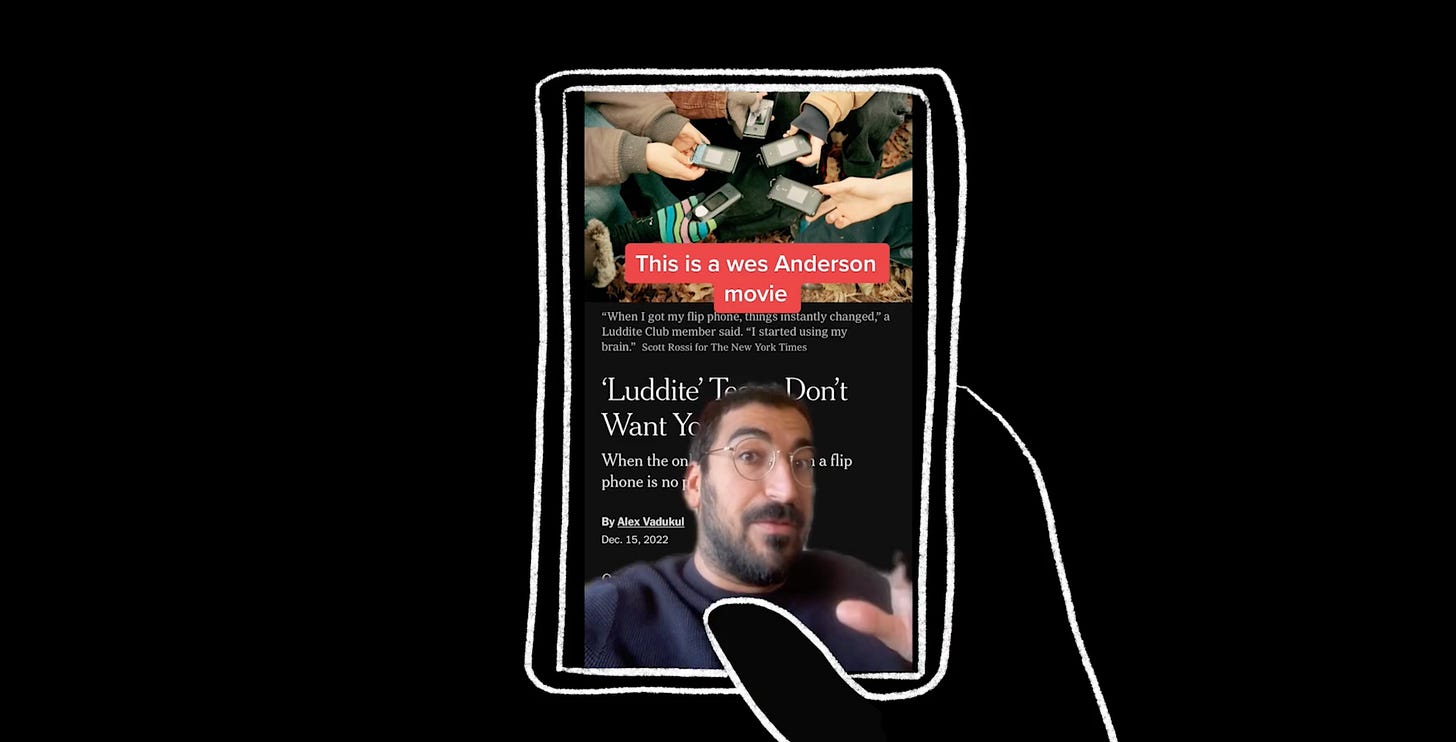Bad Influence: Amanda Hanna-McLeer Submits to the Modern Bullshit Disclosure
"Language is such a strange and beautiful thing. We could be in conversation, thinking we’re saying the same thing, and completely miss each other."
To "submit" is to give in, agree, and follow the rules. In this series, artists freely look at the influences that shaped their identities and artistic creations, the opportunities these influences have provided (or have not), the modern bullshit they are raising hell about, and how they've benefited by both playing by the rules and breaking them. Thus the "disclosure" portion. Xx Jess
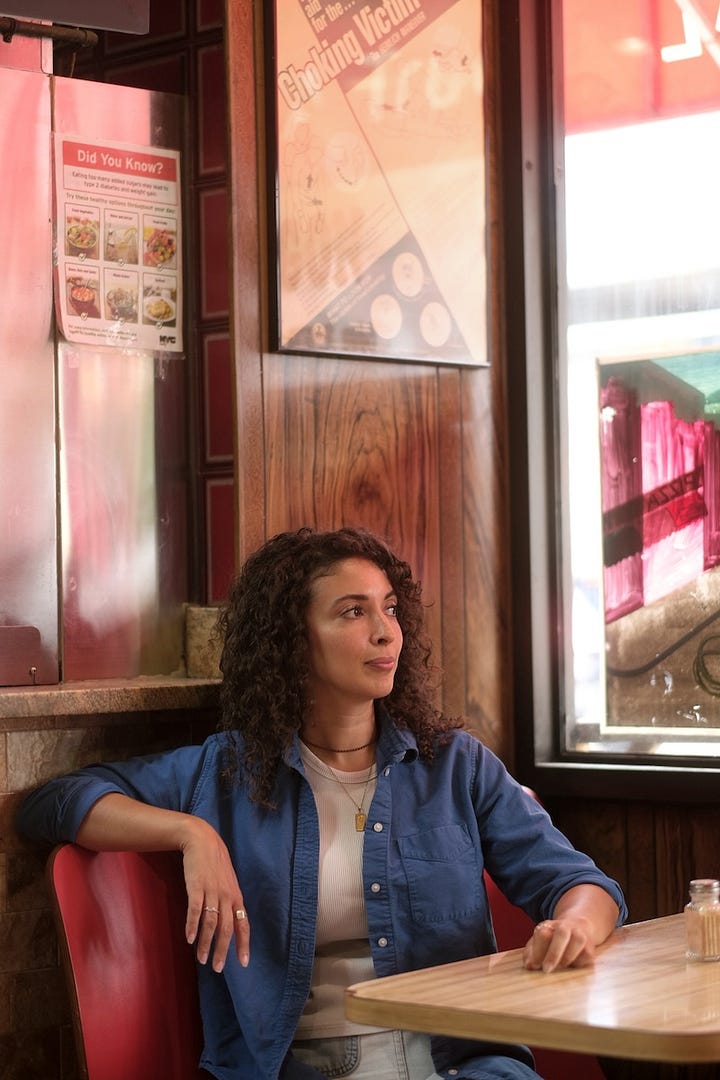
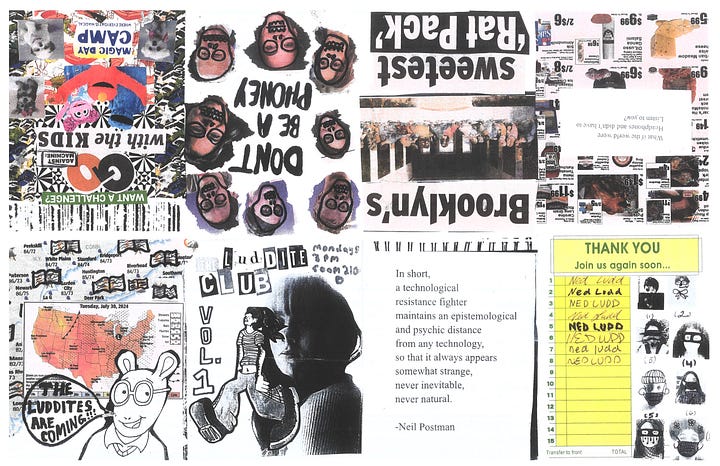
Amanda Hanna-McLeer was born, raised and educated in Brooklyn, New York. She went to, and later taught at, Edward R. Murrow High School, the birthplace of the Luddite Club. She is a writer, international director, RISD grad, animator and educator. After graduating college, she worked in post production on the critically acclaimed and Emmy winning FX show The Americans, Comedy Central’s Broad City and HBO Max’s High Maintenance.
-
I kept getting emails, DMs, and even print copies of a New York Times article about teens going offline and reclaiming “Luddite” as a badge of honor. As we emerged from the pandemic, it was proof that I wasn’t crazy—people kept sending it with “You’re not crazy!” notes. I’ve been advocating for a more analog, tech-questioning lifestyle since 2014 through Folk Rebellion. Back then, people thought I was nuts. Now, the world has caught up to the concerns of Big Tech, and these kids are actually doing something about it!
Those of us who share these values tend to find each other. I’ve known Joe Hollier, the founder of The Light Phone, for over a decade. The founder of Yondr, the company creating phone-locking pouches for schools, was featured in my old newspaper, The Dispatch. Lenore Skenazy of the LetGrow and Free-Range Kids movement (and personal hero of mine) blurbed my book and recently spoke at a Mothers Against Media Addiction (MAMA) chapter meeting. And Jenny Odell and I shared the stage at the Brooklyn Book Festival—a dream come true. I think of us as some sort of band of misfit avengers finally getting our due.
So when I met Amanda, the documentarian filming my neighborhood Luddites at the MAMA gala and typed my number into her flip phone, it was another “These are my people” moment. Now, I’m helping these offline teens with their Kickstarter. They’ve raised $130K of their $150K goal, with just $20K left to go in 48 hours—and I know this community will support their mission. We’re all part of this movement, trying to turn this upside-down world right-side up.
Here’s my interview with Amanda.
—
What’s your title or a one liner in how you reference yourself in relation to the work you do?
director/educator/post producer/freelancer/union/organizer/waitress
How long, and how many other titles/jobs/lives, did it take you to achieve that title? What were they? Give me all of ‘em, especially the shitty ones.
Oooh yes. As my title suggests, I’ve held many. As I referenced in my Creative Independent interview, I think most of my shitty experiences come from waitressing. Not because of my coworkers (shoutout to the back of house staff. Mi esposo Leo: siempre seré tu colocha) but always because of the customers and the managers (they know who they are).
I quit my teaching job to direct the The Luddite Club full time.
The corporate greed that resulted from the Hollywood strike decimated the film industry so all of my B-Z backup plans for work fell through. So after 6 months of trying and failing to get funding for the doc, I had to take a waitressing job. I was devastated. I was the first person in my family to go to college and get a degree. I hadn’t waitressed since I was in my early twenties (I’m 31 now). Whenever a customer would talk down to me, it was really hard not to take it personally. But truthfully, it was the best thing for me to do. Service work is humbling and it’s also straightforward.
Some days when I was pulling my hair out editing, ordering and reordering scenes, it was a relief to just set up a table. Cup > plate > napkin > fork > knife > done.
Waitressing motivated me to keep doggedly pursuing this film. It’s also incredibly social. Most of the bartenders and servers were creatives in film and theater. I made some great friends.
Do you feel comfortable with the title? Do you feel deserving of it or like you’re faking it? Both? Neither? Why?
I’ve definitely suffered from imposter syndrome. God, when I learned that that was a thing, I was so relieved. I had a nervous breakdown my senior year in college because of all of the pressure I put on myself to succeed. I was a scholarship student at RISD. While filming my senior thesis, I dropped 20 pounds and almost didn’t walk for graduation. I never thought my work was good enough, despite reassurances from my friends and family. I recovered and started working two days after I graduated. But what I now realize is that I never really recovered - I just buried it all. All of the things I suffered from in college came up again during the pandemic.
What finally broke me was teaching. But it was a kind of kintsugi breaking.
I couldn’t be a perfectionist because the work load was insane. I was always planning my lessons the day of, so I made mistakes! My first lesson ran 15 minutes short. The kids and I just stared at each other. I felt like an actor who forgot her lines. I wore a mask for 8 hours straight and I couldn’t see ¾ of my students’ faces. The kids were traumatized from the pandemic, so the usual shyness that comes with the territory was exacerbated. All of this taught me to get comfortable with mistakes. Teaching made me let go of the control I fought so hard to maintain as a younger woman.
Is there anything in your upbringing (family, location, decade) that influenced your ideas on what a successful creative looks like?
I’m a fourth generation Brooklynite from Bay Ridge (yes, we’ve all watched Saturday Night Fever ad nauseum).
I come from a long line of Brooklyn Bruisers and artists, on both sides. My parents were high school sweethearts turned adversaries--super hot and cold. My dad’s a rapper and music producer who made his money working on an HVAC van for most of my childhood. We were evicted from several apartments due to noise complaints and owing back rent.
While my mom isn’t an artist, she has an incredible eye and is very worldly. Her father was a film projectionist and exposed her to beautiful films. My stepmom came from a big Irish (not Catholic) family of 7. She was always a crafty person who knew how to make something out of nothing. We made a rollercoaster out of plastic weather strips and marbles when I was in fourth grade. I inherited the big dreams from dad, the discerning eye from mom and the inventiveness from my stepmom.
Growing up in a blended family was full of the expected drama, but it made me really sympathetic to all sorts of people, from all walks of life. My dad is a graffiti artist who rapped about sticking it to the man while my stepgrandpa and uncle were NYPD cops. We had a lot of fights and some fallouts over the last decade because of this tension. But I also credit it with bursting my insulated, collegiate bubble that I would have otherwise been bound to, coming out of RISD.
How old are you?
31.
**Note to younger self: your life is not over at 16, 22 or 28, despite all the upheaval you’re going through. Stay strong and lean on your loved ones. Protect your heart and stay green.
How has working with children influenced this project or your career.
Teaching high schoolers was the hardest but the most rewarding thing I’ve done in my life so far. I had to confront a lot of my own hang ups. As you get older, you realize you’re still just that 17 year old girl inside. So when you come in contact with actual 17 year olds it’s really disorienting. You start to think - what’s changed for me since then? What hasn’t? What should change? I often say that I went back to high school to learn everything I didn’t learn the first time.
I was a very tunnelvisioned, bookish teen. I didn’t go out much. I didn’t date. Part of it was because I’ve always been an old soul (young parents will do that to you) but I also denied myself a lot of fun when I was young. I had this Spartan mentality that served me in some ways but also hardened me in others. I brought all of this with me to teaching. It was--and I mean this sincerely--very healing to help kids navigate these things as an adult, though I often felt underqualified to do so.
Above the Influence:
There are SO many things influencing us day in and day out. We are consuming the ideas, desires, content, utilities, structures, etc that are keeping us ‘under the influence’ without ever even realizing it. And importantly, behind each of these things is a person, an industry, or a system that is likely benefiting from our compliance.
A commercial can influence us in the same way a relative can.
A stoplight can influence us in the same way a piece of legislation can.
An algorithm can influence us in the same way cocaine can.
A salesperson can influence us in the same way a billboard can.
Since this is a disclosure, can you deconstruct one time you were looking to put someone/people ‘under the influence’ and how you did/do it? What tactics have you used to persuade, get people to take action, or comply?
That’s exactly what I’m trying to do with The Luddite Club. While I’ve only been working on the film for two years, I’ve been on this soap box for about ten years now, asking people in my life things like:
FRIENDS:
Can you put your phone away/take out your airpods when we’re talking?
Why do we just watch vine/tiktok compilations when we’re hanging out?
Can’t we just listen to music, cook, catch up without our phones?
Do you really need me to be on five separate group chats?
COLLEAGUES
What entitles you to reach me via text, email, dm, phone at all hours of the night?
Don’t you want to eat lunch with me at Bryant Park rather than behind your screen? Maybe even sneak in a 10 minute siesta in the grass?
I know I’m a computer/desk worker (non physical laborer) but why does that entitle you to ask me to work 13 hours without overtime?
Shouldn’t we have a right to disconnect after 6pm?
When I finally got rid of my social media accounts, I lost a lot of friends. There were of course those who I knew I would lose--people who just sent fire emojis to my stories--but there were some that I was really disheartened to lose. I felt incredibly invalidated and lonely in this pursuit for a long time.
But reading Jenny Odell’s How To Do Nothing: Resisting the Attention Economy changed everything for me. I thought, here was someone who is a tech artist who is just as critical of tech as I am. I felt emboldened to challenge the status quo in a very public way, like writing for Current Affairs and calling out unjust labor practices in Hollywood. The instability of the pandemic also empowered me to organize my colleagues and fight for a union for post administrative workers. Teaching was just another extension of this work. Teachers are incredibly influential. I wouldn’t be who I am, go to the school that I did, get the job that I did, without my art teachers-turned-collegaues Spy Kontarinis and Carlos Rosado (I interviewed them for The Luddite Club).
When I became a teacher, I was very aware of the power and responsibility I was wielding. It was daunting but yet, again, empowering. I learned to frame the right questions.
Language is such a strange and beautiful thing. We could be in conversation, thinking we’re saying the same thing, and completely miss each other.
Teaching is exactly that, but multiplied by 30 (or 120 if you took all of my students into account). You see how your directives can get misinterpreted in 120 different ways. After suffering through that chaos, you learn to ask the right questions in order to elicit a thoughtful response (teens love flat yes or no’s). In order to do that, you also learn that you need to engage in deep, concentrated listening.
Without this experience, I wouldn’t be able to make this documentary. I look at it like an extended argument essay--shout out to Ms. Carolyn Kohli, I’m not done thanking teachers yet.
What rules did you break to get where you are today? Which did you follow? What helped/hurt? Any you are currently working to undo?
My god I was such a rule abider. Again, my mom and dad were immensely cool and got into a lot of trouble when they were growing up. Mom threw house parties, dad dj’d them.
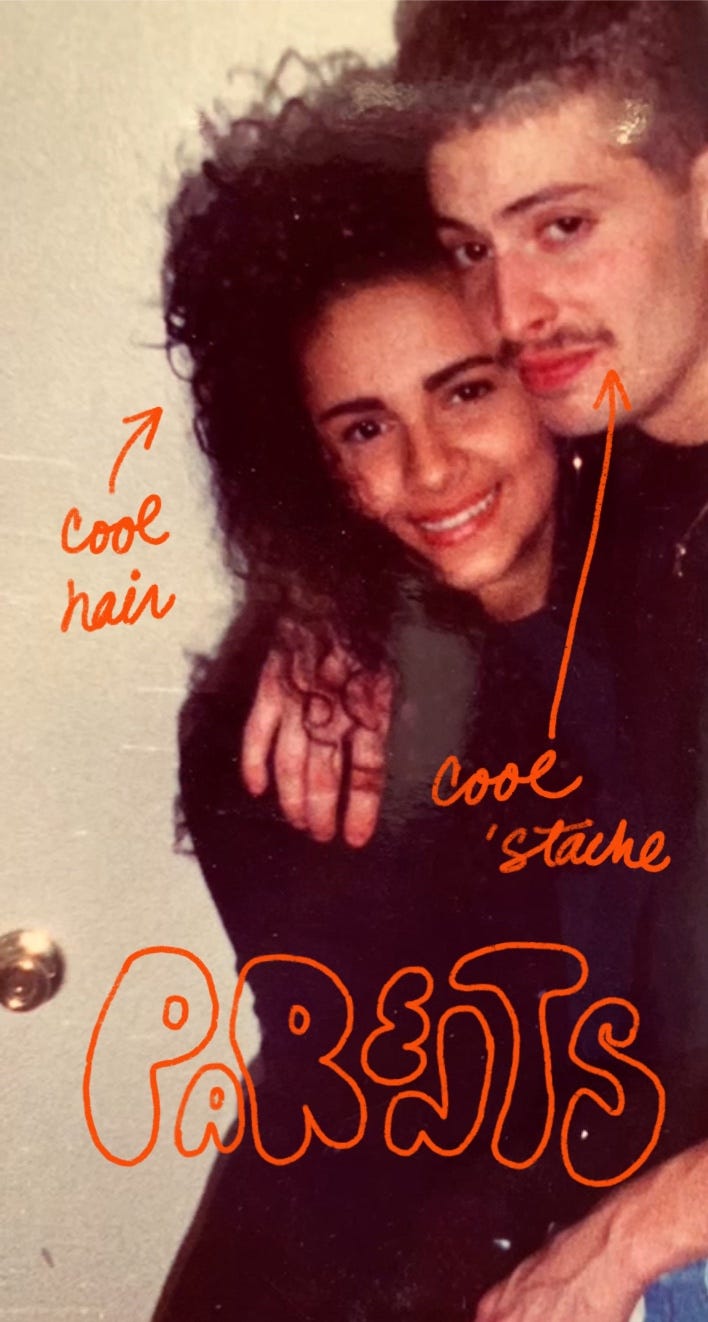
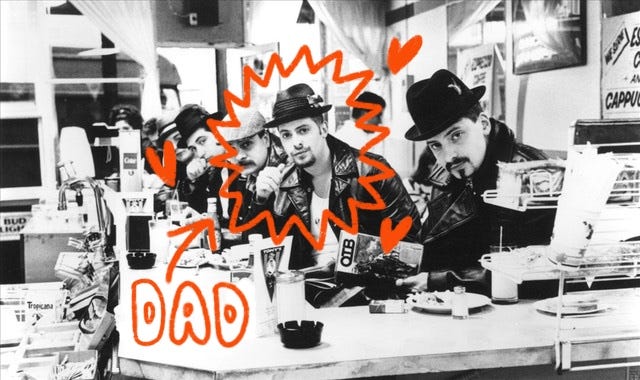
Since he was 13 years old, my dad got arrested several times for bombing (graffiti not bombs!) trains. My uncle owned a tattoo shop.
The only way to rebel when your family is cool is to be an absolute nerd.
So my rebellion was latent and came out in my twenties. I quit jobs that didn’t serve me. Wrote scathing articles about systems that people worshipped. I left relationships that stifled me. It was terrifying doing all of this, after being so prim, proper and controlled for so long, but also immensely liberating.
What would 14 year old Amanda think about your life today as a filmmaker?
She would be pretty psyched. She always wanted to be an artist. She loved noticing and watching moments unfold. Sometimes, when she was freaked out about the concept of death (I must have been a French existentialist in my past life because the concept of nothingness hit REAL young) she’d stay up to watch the sun rise from her bedroom window. She loved watching the sun change the sidewalk from blue to pink to orange and yellow.
Where is Amanda when she is 94 and what is she doing?
We don’t know. She’s been off the grid for so long that people think she died. But she’s probably living under her nom de plume, not as a writer but as a park ranger in one of the national parks.
Tell readers one thing you won’t let technology cannibalize your IRL experience of and why they shouldn’t let it either.
I’ll give you two! Concerts and precious works of art. Please don’t obscure my view of James Blake or David Hockney with your selfie stick.
Fund Amanda’s documentary: The Luddite Club
About the Editor:
is an interdisciplinary writer, artist & tech critic at the heart of modernity & humanity. Her book, Raising Hell, Living Well: Freedom from Influence in a World Where Everyone Wants Something from You (including me) is out now (PRH, ‘23).




